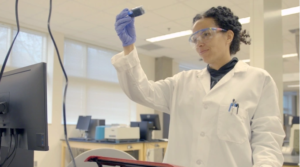|
Getting your Trinity Audio player ready...
|
A scientist is special because of his or her knack for creative problem-solving and understanding complex systems.
Therefore, this ability has enabled them to make great advances in our understanding of the world and unlock solutions to difficult problems.
In this article, we will explore some of the factors that lend scientists their unique strengths and perspectives.

Curiosity
Scientists are naturally curious, often spending hours researching and exploring new ideas.
They are driven to understand the underlying mechanisms of their fields, which can lead to breakthroughs in technology or medicine.
Analytical Thinking
A scientist must be able to think analytically and critically to identify patterns, draw conclusions, and devise solutions.
Therefore, this ability is key for developing new theories and testing hypotheses.
New Theories and Hypothesis
Scientists are constantly developing new theories and hypotheses as they explore the world around them.
This involves collecting data, analyzing it, and coming up with creative solutions to difficult problems.
Collecting Data
A scientist must be able to collect data from various sources and analyze it to draw meaningful conclusions.
This requires a combination of knowledge, technical skills, and an understanding of the scientific method.
Analyzing Data
Scientists must be able to interpret data to draw meaningful conclusions. This involves a combination of knowledge, critical analysis, and creative problem-solving.
Creative Problem Solving
As a scientist you must be able to think outside the box to come up with creative solutions for difficult problems.
This requires an understanding of the data as well as the ability to think creatively.
Collaboration
Furthermore, a scientist need to be able to collaborate with other scientists to move research forward.
By working together, scientists can share ideas, resources, and perspectives which can lead to a greater understanding of complex systems.
Communication Skills
Scientists must also have strong communication skills to effectively communicate their findings to other scientists and the public.
This includes writing reports, presenting research results, and creating visuals that help explain complex concepts.
Passion
Perhaps the most important quality of a scientist is passion; they must have a genuine interest and enthusiasm for their field in order
Systematic Approach
Scientists often approach problems systematically by breaking them down into smaller parts that can be studied individually.
This allows them to gain a better understanding of the whole system as they analyze each component in detail.
Open-mindedness
Scientists must be open to new ideas and different perspectives to make progress.
They must also be willing to challenge existing theories and question assumptions to develop innovative solutions.
Perseverance
Scientists must have the perseverance to continue their research even when progress is slow, or results are not immediately forthcoming.
This often involves long hours of work and dedication, but in the end, it can lead to breakthroughs that benefit society.
Curiosity
Scientists must be naturally curious about the world around them and be willing to explore new ideas.
This is what drives them to ask questions, make observations, and conduct experiments to uncover new knowledge.
Objectivity
Scientists must be objective in their approach to research.
Therefore, this means that they must strive to remain unbiased and not allow personal biases or preconceived notions to influence their interpretations of data.
Online Money
To add on, a scientist must also be adept at using online money transfer systems.
This is important if they are conducting research with collaborators from other countries or need to purchase supplies and equipment for experiments.
Technology
Scientists must also be familiar with the latest technology to make the most of their research.
This includes everything from using computers for data analysis to using robotics and other advanced tools for experiments.
Critical Thinking
Scientists must be able to think critically to analyze data and draw conclusions from their observations. This requires an understanding of the scientific method as well as the ability to think logically and objectively.
Problem-Solving Skills
Scientists must also have strong problem-solving skills to find solutions to complex problems.
This includes the ability to identify and analyze a problem, generate potential solutions, and evaluate the results of their efforts.
Time Management
Lastly, scientists must also be able to manage their time effectively to get their work done on time.
Moreover, this involves setting realistic goals, breaking down tasks into manageable chunks, and prioritizing work according to importance.
Conclusion
In conclusion, scientists must have a variety of special skills to succeed.
Moreover, they need to be open-minded, persevere, curious, objective, adept in online money transfer systems, familiar with the latest technology, able to think critically and creatively, have strong problem-solving skills, manage their time effectively and be able to network effectively.
All of these skills are essential for scientists who want to make progress in their field and benefit society.

